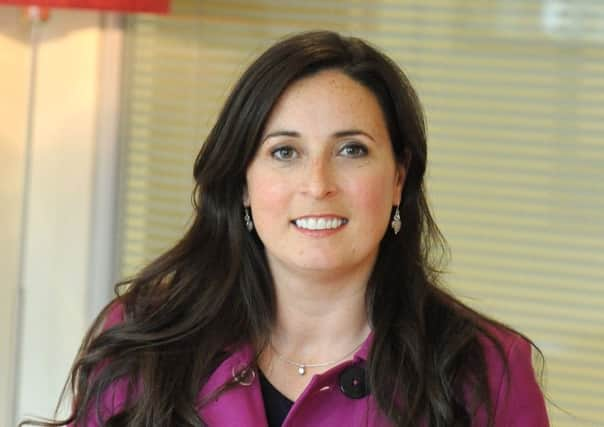Comment: Sir Jackie Stewart unites sport and science in drive to beat dementia


Working in healthcare, technology and construction, I am encouraged by the increasing number of organisations tirelessly trying to make the lives of those with dementia and their families more bearable. From specialist care homes and dementia research to software which allows architects to design more effectively by seeing the world as though they had dementia, we have been fortunate to play a small part by raising awareness of these dementia-friendly products and services.
Unfortunately, I am not alone in watching someone I love disintegrate in front of me as a result of this disease. We hear lots about possible cures for cancer and heart disease with high-profile campaigns to fund research. Dementia research, a little, but not so much. At the same time as standing up to cancer, dementia seems almost accepted or expected as we age.
Advertisement
Hide AdAdvertisement
Hide AdAccording to Alzheimer’s Research UK, 50 million people globally are living with dementia. By 2050 this number will explode to 152 million. In the UK alone, almost one million are living with dementia and 25 per cent of hospital beds are occupied by those with dementia over 65. At nearly £12 billion, the health and social care cost of dementia in the UK is bigger than cancers and heart disease combined, putting a massive strain on public spending and our economy. It is the UK’s number one killer. So, why do we hear so little about this cruel disease and what’s being done to find a cure?
Around 65 per cent of those with dementia are female. It is the leading cause of death for women. Women like my precious mum. Hundreds of thousands of families are living this nightmare every day and it is not just those with dementia who are affected. It also has a greater impact on women generally as the majority of carers are women. One-fifth of female carers have gone from full-time to part-time work as a result.
An epidemic disproportionately affecting women with little hope of any solution on the horizon. #MeToo on steroids. So, I was hugely encouraged to hear about Race Against Dementia, a charity founded by Sir Jackie Stewart to fund pioneering research into the prevention and cure of dementia, borrowing techniques from the fast-paced world of Formula One.
Sir Jackie’s wife, Lady Helen, was diagnosed with dementia in 2014. Once a razor-sharp mind who timed her husband’s laps with millisecond accuracy, her short-term memory is fading and dementia is taking hold, devastating the Stewart family as it did my own and millions of others globally. Crowned Formula One world champion three times and winning 27 Grand Prix, Sir Jackie says he is now facing one of the biggest challenges of his life.
Race Against Dementia’s mission is “working faster and smarter to cure dementia”. With support from Formula One royalty, the charity hopes to transfer the sport’s lightning fast data gathering, analysis and innovation to dementia research. In this high-performance environment it is all about results. There is a relentless drive to succeed by using innovative and collaborative technology against the clock. The aim is to transfer this to find a cure and help prevent dementia.
This is a great example of sport, technology and science coming together to battle this killer, which blights far too many lives. At Perceptive, we have been privileged to provide communications support to organisations helping those with dementia and their families. Can you imagine the impact of reducing or even eradicating dementia? Too late for my precious mum but hopefully not for the 152 million and their families affected by dementia in the next 30 years.
- Julie Moulsdale, MD of Perceptive Communicators.